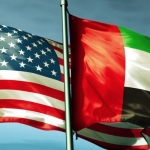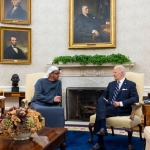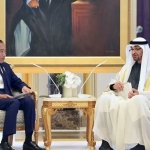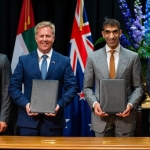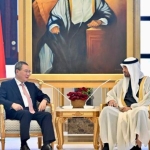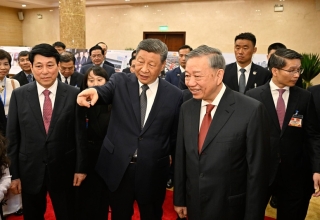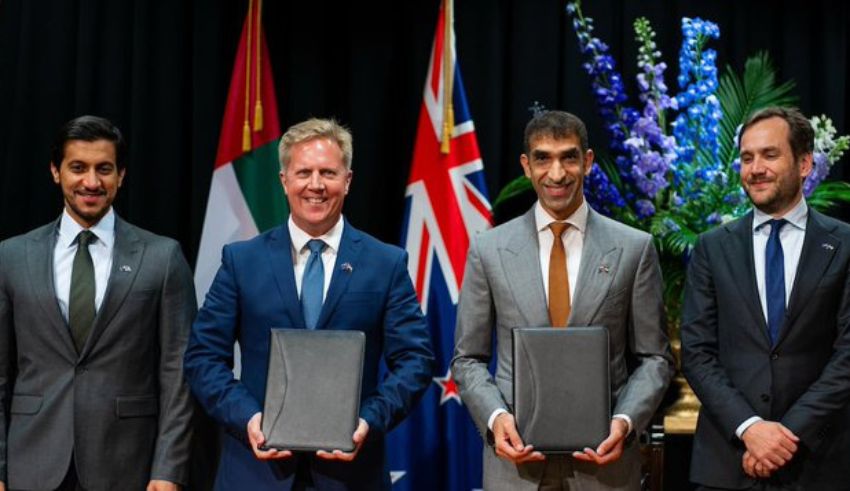
With the coalition government signing a first-ever trade deal with the United Arab Emirates (UAE), New Zealand’s international trade goals underwent a notable turning point. Trade Minister Todd McClay and UAE Minister of State for Foreign Trade Dr. Thani bin Ahmed Al Zeyoud arrived at an understanding on the Comprehensive Economic Partnership Agreement (CEPA) at a historic morning’s negotiations. Thanks to this trade agreement, which also helps to enhance economic ties between the two countries, exporters from New Zealand should find new possibilities.
Synopsis of the agreement on a comprehensive economic partnership
Celebrated as the greatest trade-liberalizing agreement the UAE has signed, the CEPA shapes regional standards. Under the arrangement, New Zealand will instantly remove taxes on 98.5% of its exports to the UAE; this ratio increases to 99% over the next three years. According to Minister McClay, this development will give New Zealand companies lots of fresh chances to join the active UAE market. He underlined that the agreement will significantly determine whether New Zealand reaches its aim of increasing its export value during the next ten years.
For New Zealand already, the UAE is a major market. Two-way commerce between the two countries came to $1.3 billion in the fiscal year completed June 2024. The UAE is among the top 20 export markets for New Zealand generally and the biggest market in the Gulf region for certain goods. Key exports from New Zealand to the UAE are red meat, dairy products, industrial goods, horticulture produce, travel services. Particularly, the $718 million dairy exports from New Zealand to the UAE largely support the national exports in that regard.
Opening horizons: Deal of Gulf Cooperation Council (GCC)
Although the CEPA shows a clear rise in commercial links between New Zealand and the UAE, it is also considered as a necessary first step towards securing a more broad trade agreement with the Gulf Cooperation Council (GCC). Long a strategic target for New Zealand’s commercial aspirations, the GCC includes among other countries Saudi Arabia, Qatar, Kuwait, Bahrain, Oman, and the UAE. With a current value of around $2.96 billion, a complete trade agreement spanning the whole bloc might help to significantly stimulate trade between New Zealand and the GCC.
Over ten years of continuous negotiations with the GCC; McClay thinks that the effective cancellation of the UAE deal will expedite more general negotiations. Dr. Al Zeyoud agreed, pointing out that the bilateral deal with the UAE will most likely hasten the GCC negotiations and help to draw attention to the earlier achieved progress in those talks.
Positive Notes from Businesses and Trade Associations
Key New Zealand players have generally embraced the CEPA. Pointing out that Labour had started looking at the pact in 2023 under exploratory negotiations, labour trade spokesman Damien O’Connor hailed the deal. He also underlined the UAE’s significance as the main actor in aviation connectivity of the nation to the Middle East and beyond and as a hub for New Zealand’s Middle Eastern activities. O’Connor also pointed out how the CEPA will enhance the current trade accords signed under Labour’s direction with the United Kingdom and the European Union.
Of the main agricultural groups in New Zealand, Federated Farmers also approved of the deal. Noted President Wayne Langford, the arrangement will save taxes usually paid to New Zealand exporters millions of dollars. He underlined that the financial advantages of the agreement would directly assist rural areas of New Zealand, thereby giving the agriculture industry much-needed assistance. Langford praised the government for keeping its promise to investigate uncharted territory and lower trade restrictions for New Zealand exporters.
Issues Council of Trade Unions Reports
Though the agreement generated much excitement, the Council of Trade Unions (CTU) expressed worries about the absence of components of worker rights in it. CTU Richard Wagstaff’s president attacked the agreement for not tackling problems related to worker rights in the United Arab Emirates. Wagstaff noted that as workers are not allowed to strike and independent trade unions are not present in the UAE, the nation ranks among the lowest for workers’s rights.
Keep Reading
Wagstaff also voiced worry for the 88% of the UAE workforce made of foreign workers, who often suffer with unstable working conditions and have no defense under UAE law. Particularly with regard to problems like forced labor and modern slavery, he argued the agreement should have contained strong clauses safeguarding these less fortunate people. Wagstaff especially objected to the deal for not including policies addressing environmental concerns, most especially with relation to climate change. He reassured the CTU that it will collaborate with other interested groups and the government to increase awareness of these problems during next trade negotiations.
More General Reactions About Trade Strategy for New Zealand
The UAE trade agreement marks a turning point in New Zealand’s more ambitious global economic footprint expansion plan. With tariff-free access to one of the biggest markets in the Gulf region, New Zealand is positioned to increase export income and strengthen its economic links with a significant trading partner. As New Zealand wants to become more engaged with the larger Gulf area, the acceleration of the GCC negotiations also presents even more opportunity for even more business prospects.
While labor groups like the CTU attract attention, trade agreements have to combine social and environmental obligations with commercial gains. Although New Zealand is still searching for them, legislators should take into account the wider consequences of new trade agreements on workers’ rights, environmental sustainability, and other crucial concerns.
Ultimately, for the coalition government of New Zealand, their CEPA with the UAE represents a major success and creates fresh opportunities for domestically based exporters. Although the deal will most likely result in significant financial benefits, more has to be done to solve labor groups’ issues and guarantee that following trade treaties consider all spectrum of social, environmental, and financial aspects into decisions.
